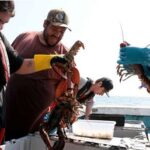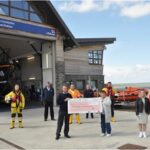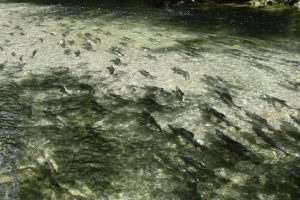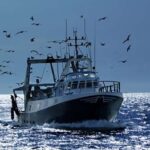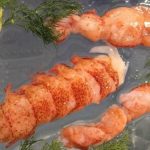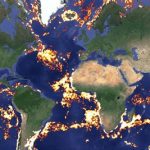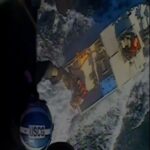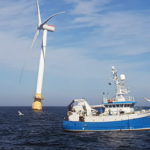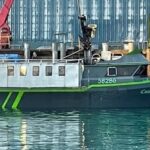Daily Archives: June 20, 2024
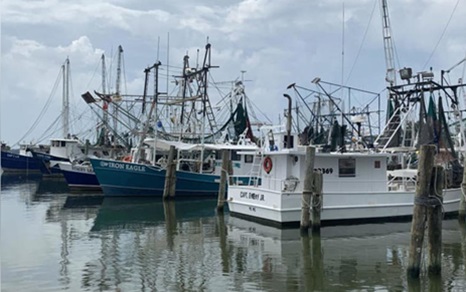
Seafood industry groups unite to oppose bill that would limit bottom trawls
A bill introduced last month in the U.S. House of Representatives that could place limits on trawling by fishermen and shrimpers is drawing the fire of seafood industry groups from Alaska to Florida. House Resolution 8507, the Bottom Trawl Clarity Act, would require the nation’s eight regional Fisheries Management councils, some of which allow fishing trawls to scrape the bottom, to define the terms “substantial” versus “limited” contact of the bottom. The bill is authored by U.S. Rep. Mary Peltola, D-Alaska, who said in a summary of the legislation that “limiting the areas where bottom trawling is allowed will help enhance marine health, diversity, and resilience, strengthening the ocean ecosystem that Alaska fishermen depend on.” more, >>CLICK TO READ<< 16:15
Bristol Bay Fishermen Cautiously Optimistic About 2024 Season Citing Higher Prices, New Processor
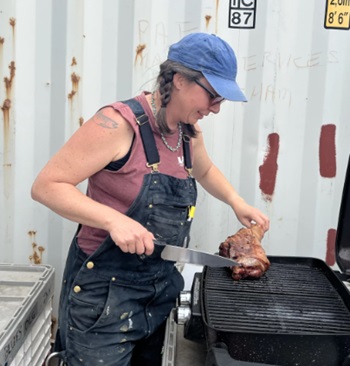 This season, the Bristol Bay 2024 sockeye salmon forecast estimates a total run of 39 million fish. That’s 35% smaller than the most recent 10-year average run size, and a drop from last season’s 54.5 million fish run. This weekend in Dillingham, the boatyard and harbor were noticeably quieter, with some discussion of crews holding off on big renovations and putting boats in the water later, to help cut costs and recover from last season’s low prices. But despite the lower forecast and market uncertainty, crews seem cautiously optimistic headed into the new season. Meghan Gervais, a long time captain of the F/V Maru takes a break from boat repairs to get out the grill. Gervais talks about her hopes for the coming season as she turns over a leg of lamb on the grill for family dinner, who is crewing with her this year. She’s been working on boats in Bristol Bay since 2006. “I feel cautiously optimistic,” Gervais said. Photos, more, >>CLICK TO READ<< 13:33
This season, the Bristol Bay 2024 sockeye salmon forecast estimates a total run of 39 million fish. That’s 35% smaller than the most recent 10-year average run size, and a drop from last season’s 54.5 million fish run. This weekend in Dillingham, the boatyard and harbor were noticeably quieter, with some discussion of crews holding off on big renovations and putting boats in the water later, to help cut costs and recover from last season’s low prices. But despite the lower forecast and market uncertainty, crews seem cautiously optimistic headed into the new season. Meghan Gervais, a long time captain of the F/V Maru takes a break from boat repairs to get out the grill. Gervais talks about her hopes for the coming season as she turns over a leg of lamb on the grill for family dinner, who is crewing with her this year. She’s been working on boats in Bristol Bay since 2006. “I feel cautiously optimistic,” Gervais said. Photos, more, >>CLICK TO READ<< 13:33
Harvesters Won’t Fish for Panel Price, Colossal Failure of Price Setting Panel Continues
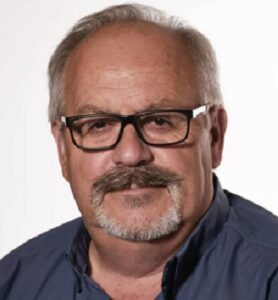 The offer from the Association of Seafood Producers (ASP) fails to provide a fair distribution of value and highlights the total failure of the price setting system in the province, and harvesters are refusing to fish. “The ask here is straightforward—capelin harvesters are seeking a fair share of the value derived from the capelin fishery. We are proposing a formula-based system that would account for market uncertainties and ensure that the value is evenly split between processors and harvesters. We need to guarantee that at least half the value of the fishery remains with the workers in Newfoundland and Labrador,” explains FFAW-Unifor President Greg Pretty. “If ASP members are serious about this being a shared industry under threat, then give us our fair share,” says Trevor Jones, fish harvester and Negotiating Committee member. “If the Province is serious about preserving the inshore fishery and keeping the value of the fishery in the hands of workers in this province, then they have to take a stronger stance. A minimum price must be a fair price,” says Jones. more, >>CLICK TO READ<< 11:12
The offer from the Association of Seafood Producers (ASP) fails to provide a fair distribution of value and highlights the total failure of the price setting system in the province, and harvesters are refusing to fish. “The ask here is straightforward—capelin harvesters are seeking a fair share of the value derived from the capelin fishery. We are proposing a formula-based system that would account for market uncertainties and ensure that the value is evenly split between processors and harvesters. We need to guarantee that at least half the value of the fishery remains with the workers in Newfoundland and Labrador,” explains FFAW-Unifor President Greg Pretty. “If ASP members are serious about this being a shared industry under threat, then give us our fair share,” says Trevor Jones, fish harvester and Negotiating Committee member. “If the Province is serious about preserving the inshore fishery and keeping the value of the fishery in the hands of workers in this province, then they have to take a stronger stance. A minimum price must be a fair price,” says Jones. more, >>CLICK TO READ<< 11:12
Canada to ban open-net pen salmon farming in British Columbia
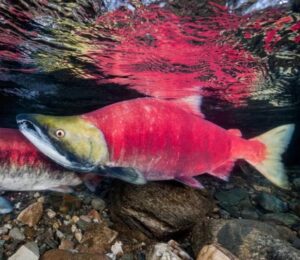 “Today, we are delivering on that promise and taking an important step in Canada’s path towards salmon and environmental conservation, sustainable aquaculture production, and clean technology,” said Jonathan Wilkinson, natural resources minister. There are dozens of the farms in British Columbia. More than half of wild salmon stock populations are declining in the province’s waters, according to the Pacific Salmon Foundation. Opinion polls have shown a majority of residents in British Columbia support ending open-net salmon farming, while more than 120 First Nations in the province have shown support for land-based closed containment fish farms. more, >>CLICK TO READ<< 09:27
“Today, we are delivering on that promise and taking an important step in Canada’s path towards salmon and environmental conservation, sustainable aquaculture production, and clean technology,” said Jonathan Wilkinson, natural resources minister. There are dozens of the farms in British Columbia. More than half of wild salmon stock populations are declining in the province’s waters, according to the Pacific Salmon Foundation. Opinion polls have shown a majority of residents in British Columbia support ending open-net salmon farming, while more than 120 First Nations in the province have shown support for land-based closed containment fish farms. more, >>CLICK TO READ<< 09:27
Gulf of Alaska trawl pollock vessels to be included in electronic monitoring program
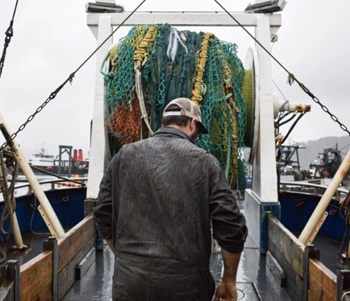 According to the 2023 annual report from the North Pacific Observer Program, the vast majority of groundfish harvest in Alaska is observed with full coverage, meaning 100% of all trips are monitored by either onboard observers or electronic monitoring. After years of testing the program, electronic monitoring will soon be expanded to include pelagic trawl pollock catcher vessels and tenders delivering to shoreside processors or stationary floating processors, across the Bering Sea and Aleutian Islands, and the Gulf of Alaska. That includes vessels that already have an observer on board. more, >>CLICK TO READ<< 07:55
According to the 2023 annual report from the North Pacific Observer Program, the vast majority of groundfish harvest in Alaska is observed with full coverage, meaning 100% of all trips are monitored by either onboard observers or electronic monitoring. After years of testing the program, electronic monitoring will soon be expanded to include pelagic trawl pollock catcher vessels and tenders delivering to shoreside processors or stationary floating processors, across the Bering Sea and Aleutian Islands, and the Gulf of Alaska. That includes vessels that already have an observer on board. more, >>CLICK TO READ<< 07:55
Rare blue lobster found by 82-year-old N.S. fisherman returned to the water
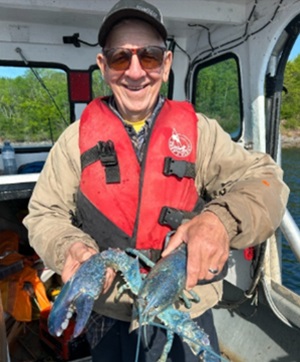 A rare blue lobster found by an 82-year-old Nova Scotia fisherman has been returned to the water. Richard Power of Mulgrave, N.S., caught the 3.5 pound crustacean last week in Pirate Harbour. A CTV Atlantic viewer said it was the first blue lobster he had seen in his 70 years of fishing lobsters. The lobster was then put on display at the market to allow the public to take photos and it was “safely released” to the Strait of Canso, where it was originally caught, shortly after. Photos, more, >>CLICK TO READ<< 06:48
A rare blue lobster found by an 82-year-old Nova Scotia fisherman has been returned to the water. Richard Power of Mulgrave, N.S., caught the 3.5 pound crustacean last week in Pirate Harbour. A CTV Atlantic viewer said it was the first blue lobster he had seen in his 70 years of fishing lobsters. The lobster was then put on display at the market to allow the public to take photos and it was “safely released” to the Strait of Canso, where it was originally caught, shortly after. Photos, more, >>CLICK TO READ<< 06:48

































